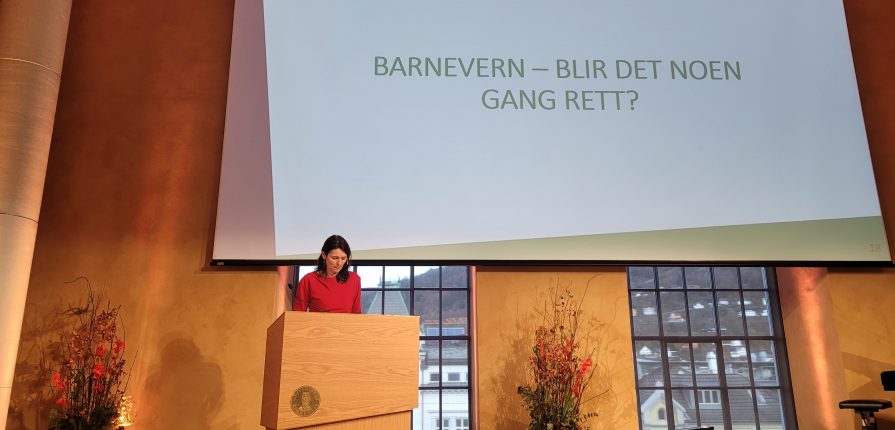LECTURE: DIPA Director, Professor Marit Skivenes, presented ongoing research on international child protection at the University of Bergen’s 75th Anniversary.
This year, the University of Bergen turns 75, marking the anniversary of several decades of quality research addressing key global challenges. As part of the anniversary, the University Museum opened its doors and organized a plethora of lectures for the public, aiming to provide a glimpse of ongoing research across various disciplines at the University.
Invited to represent the Faculty of Social Science, DIPA Director Professor Marit Skivenes gave a lecture on how the Centre contributes to central international debates about the welfare state, drawing on empirical research on child protection systems.
Discretion and legitimacy challenges in social policy
In particular, the presentation focused on the challenges that emerge when parents are unwilling or unable to care for their child. In a difficult balancing act, child protection services and courts often need to consider two conflicting interests: the rights of the child and that of his or her parents.
When should the state intervene in private and family life to protect children? How are children’s rights weighted compared to the right to family life and the rights of parents? Under what circumstances should a child be reunited with biological parents after having been in foster care? Added to the mix of these general questions is the individuality of circumstances in each child protection case.
– One size does not fit all when it comes to social issues in the welfare state. Individual cases necessitate the exercise of discretion, which opens the possibilities of unequal practice. Unequal practice, or the perceived unequal practice, can have substantial implications for the legitimacy of the welfare state, stated Skivenes.
Values and norms affect the acceptability of child protection interventions
Recently, the Norwegian child protection system has been subject to increased international scrutiny. The 2019 verdict by the European Court of Human Rights stated that Norway had violated the right to respect for private and family life when deciding that a young boy was to be adopted without the consent of the biological mother. The Strand Lobben and Others v. Norway case effectively challenged the Norwegian child protection system’s attribution of weight to the right of the child versus that of his or her parents.
Furthermore, the extensive global protests against “Barnevernet” over the past years indicate that there seems to be a substantial discrepancy between perspectives on child protection interventions across populations.
To better understand differences in perspectives, the Centre is currently conducting a global survey with partner institutions. In her presentation, Skivenes provided an early glimpse at these unique data and how they can tell us more about variation of values and norms that pertains to questions of child and family rights globally.
– What we see in our preliminary analyses is that there are stark populous differences on the norms of family life and the protection of children´s rights. This likely explains some of the controversies on child protection we are witnessing in Europe lately, and it sheds light on the some of the reasons for the huge variations on the implementation and interpretation of the UN Convention on the Rights of the Child in international child protection, said Marit Skivenes.


